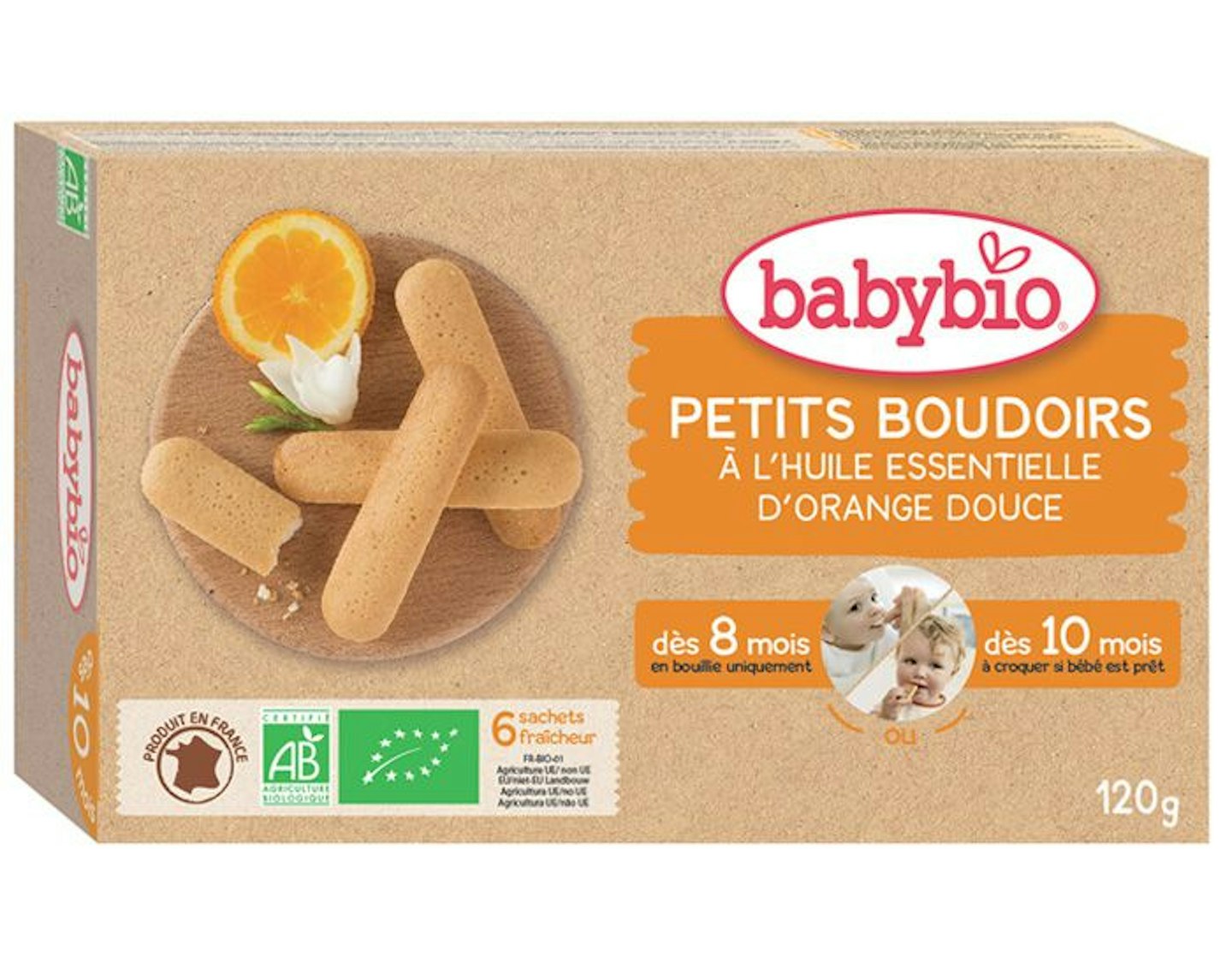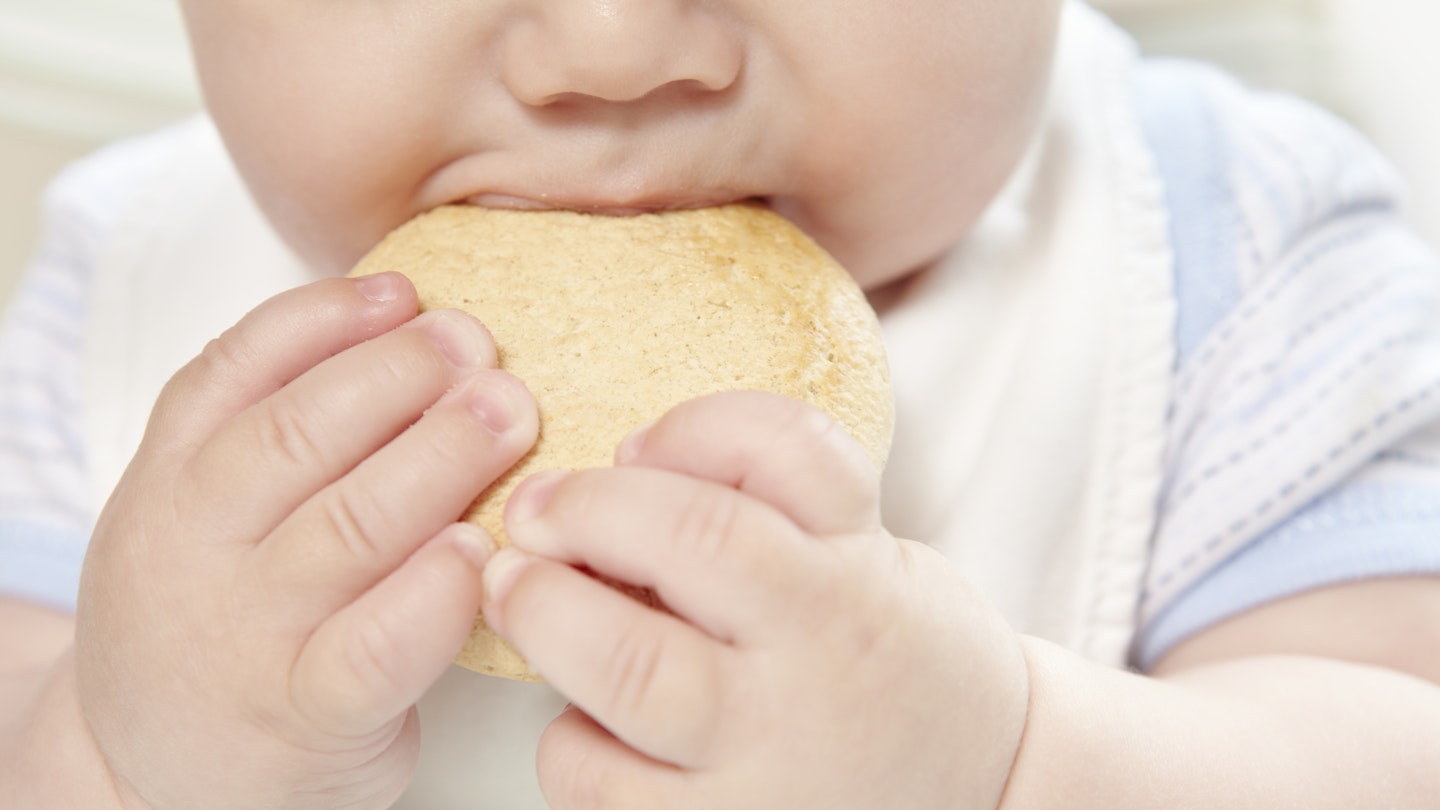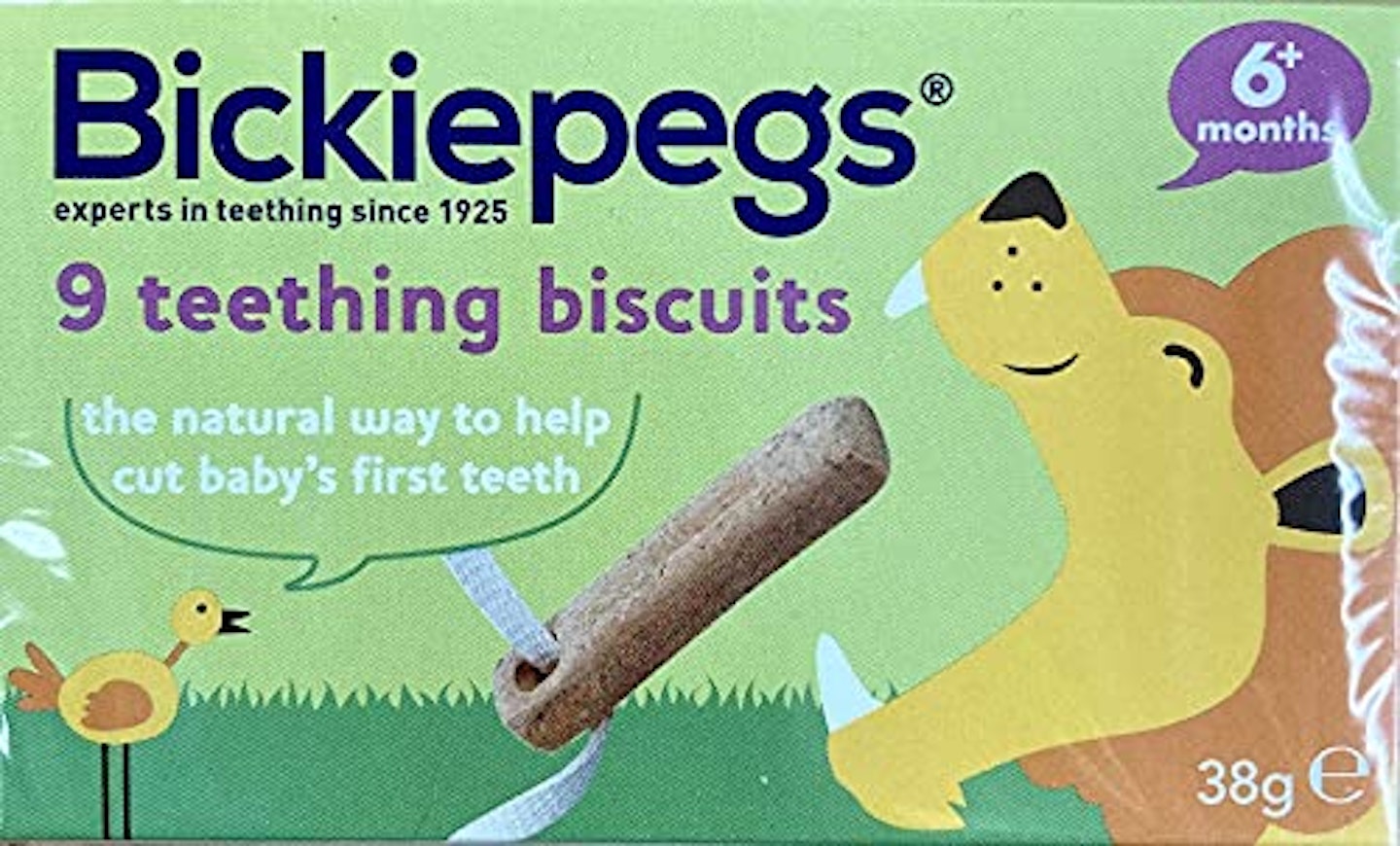When it comes to teething, you’ve probably done everything to help soothe your baby’s sore gums but what about teething biscuits?
What do teething biscuits do?
Teething biscuits pretty much do what they say on the (biscuit!) tin. A hard, dry biscuit, rather than crumbling like a traditional biscuit, a teething biscuit instead dissolves as your baby gnaws on it, soothing those sore gums. You may also see teething biscuits referred to as rusks.
Read next on Mother&Baby:
What age can babies have teething biscuits?
The majority of teething biscuits are marketed at babies from six months, this is because by this point, your little one will probably have started trying soft foods. Six months is also around the time babies usually begin teething. No matter how long your baby is teething for, these biscuits may help them throughout this painful period.
Are teething biscuits good for babies?
While there is no evidence to suggest that teething biscuits are unsafe for babies, the NHS says: ‘It's best to avoid rusks because nearly all brands contain some sugar.’ So if you are looking into using teething biscuits, be sure to check the ingredients first and opt for ones with as little sugar as possible.
Teething biscuits have actually been found to help strengthen babies jaws, preparing them for other solid foods.
It’s worth testing out a teething biscuit before giving it to your baby to ensure it dissolved rather than breaking into pieces. As when eating any food, your youngster needs to be properly seated when eating a teething biscuit as well as closely supervised.
How to make baby teething biscuits
If you fancy having a go at making baby teething biscuits yourself rather than buying them, the good news is that it’s actually pretty simple! Check out some of our favourite recipes below:
Gluten free teething biscuits
Many baby teething biscuits contain gluten, making them unsuitable if your baby is gluten intolerant in any way. While you may find it a little harder to get your hands on ready-made teething biscuits which are gluten-free, there are plenty of recipes which your baby can enjoy.
Teething biscuits to buy
1.
Bickiepegs Teething Biscuits
Bickiepegs are specially designed and shaped to help your baby while teething, providing the correct exercise vital to the development of a baby's jaw muscles, teeth and chewing skills. The shape is designed to allow him to bite at both the front and back of the mouth, whilst developing chewing skills essential for moving to solid foods. 100 per cent natural, Bickiepegs contain no artificial colorings, preservatives or flavorings as well as no added sugar or salt.
- Suitable for 6months+
- Suitable for both vegetarians and vegans and are gm and dairy-free.

go.skimresources.com
The shape and size of these orange-flavoured teething biscuits have been specially designed for babies mouth and hands.
Babybio teething biscuits can be mixed with infant milk to be enjoyed from 8 months or from 10 months when your baby is ready.
Other ways to help your teething baby
Do you give your baby teething biscuits? Let us know your thoughts on Facebook and Instagram.
Why not join thousands of mums and start your very own Amazon Baby Wish List?

